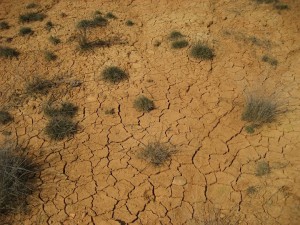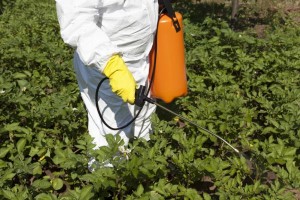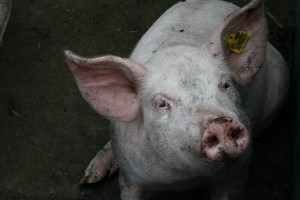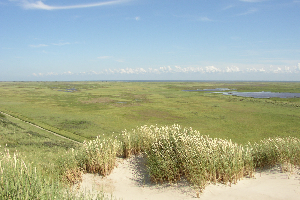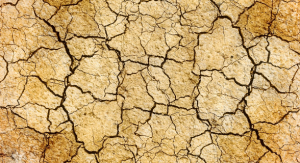Worldlog Tjedan 18 – 2015
Vjerovatno se neki 700 izbjeglica prošli tjedan utopilo u “Med Dead”, Sredozemnom moru koji predstavlja smrtonosnu prepreku za sve više očajni ljudi koji bježe u Europu. Vladinim strankama u Nizozemskoj je trebalo više od tjedan dana da postignu dogovor o tzv krevet-kupka-kruh-propisu, koji propisuje na što odbijeni tražitelji azila u našoj zemlji imaju pravo. Kao što naziv propisa sugerira radi se o vrlo osnovnim životnim potrebama za ljude koji su u velikim problemima. Meni je vrlo upitno, a osim toga sramotno, da je ova rasprava trebala da traje tako dugo.
Politička rasprava se začudo nastavlja fokusirati na kontrolu simptoma, jer se uklanjanje plodnog tla velikog broja izbjeglica čini previše komplicirano za gotovo sve stranke. Ipak upravo tu se treba tražiti rješenje. Sukobi su sve više uzrokovani zbog nestašice hrane, koja nastaje zbog problema oko klime i vode. NATO upozorava na “ratove za vodu” i znanstvenici sa Columbia University ukazuju na to da je sirijski građanski rat – jedan od uzroka sadašnjog velikog broja izbjeglica – očito “klima-rat” (rat kao posljedica klimatskih promjena). Sukobi koji se na Zapadu često interpretiraju kao etnički ili vjerski sukobi, u praksi su pogotovo sukobi o vodi i hrani.
Mi kupujemo ruže iz Etiopije i Kenije, grah iz Maroka i drugih afričkih zemalja pogođenih sušom. Mi uvozimo hranu za stoku iz Brazila, zemlja koja se bori sa sušom. A stalnim povećanjem emisija stakleničkih plinova, mi samo pogoršavamo te probleme. Mislim da je apsurdno da se žalimo o ljudima koji traže krevet, kadu i kruh, dok se mi sami ne želimo suočiti sa tim da naše blagostanje na ramenima drže najslabiji i resursi budućih generacija.
U Bruxellesu se zalažemo za europsku zabranu pesticida glifosata, sastojak popularnog herbicida “Roundup”. Glifosat je kancerogen za ljude i životinje. To je i nedavno potvrdilo znanstveno istraživanje Svjetske zdravstvene organizacije (WHO). Osim toga taj otrov zagađuje rijeke i druge površinske vode. Roundup se koristi od strane poljoprivrednika, vlade i pojedinca. Zbog masovne upotrebe tog otvora, mnogo ljudi i životinja sa njim dolaze u kontakt. Istraživanja iz 2013 pokazuju da nevjerojatnih 63 posto svih nizozemaca ima tragove glifosata u svojoj mokraći! Europska komisija trenutno razmatra da li glifosat treba nastaviti biti odobren za uporabu u EU. Međutim se uglavnom gleda na istraživanja koje su provele kemijske tvrtke. Mi smo insistirali da se pogotovo gleda na nezavisne istrage o ovom pitanju.
Stručnjaci upozoravaju na novu zaraznu bolest, odnosno hepatitis E. Svinjetina je glavni izvor tog virusa. 50% svinja u Nizozemskoj ima hepatitis E i 25% nizozemskog stanovništva je već zaraženo. Ova zarazna bolest slična je BSE ili Q-groznici i također prelazi sa životinja na ljude. Pogotovo oslabljeni ljudi ozbiljno mogu oboljeti od kontaminacije. U Erasmus bolnici u Rotterdamu je u posljednje tri godine preminilo 10 ljudi koji su bili zaražene hepatitisom E. Ipak naša vlada još nije intervenirala. Nevjerojatno, zar ne? Želim što prije parlamentarnu raspravu o ovome.
Pozdrav,
Marianne
I have some good news to start with! Thanks to our motion gas drilling on and around the Dutch Wadden Island of Terschelling is prohibited for the time being. A majority of the Lower House voted in favour of our motion. Terschelling is situated in the Wadden Area. It is a unique nature reserve that is currently insufficiently protected against damaging activities such as gas drilling and salt mining. I am delighted that our motion was granted and we will continue to fight for no more new gas drilling around the Wadden Area.
In my Worldlog of twee weeks ago, I told you about the fraud with turkey meat that was discovered at a few butcher’s in the Netherlands. The Dutch Food and Consumer Product Safety Authority has started an extensive investigation to find out whether butchers sell cheap turkey meat for lambs meat on a structural basis.
Last week, I also discussed the flow of refugees from Syria among other countries as a result of civil war. I continue to point out – both inside and outside the Lower House – that it is crucial to see those problems in a bigger perspective. We should not only look at short-term solutions but more particularly at the source of these problems. The refugee issue is, for example, connected with the fact that we consume more than the earth manages to provide: food scarcity, drought, deforestation. They are all problems that cause conflicts, wars and flows of refugees. This is, for example, evident from this study. It is high time that politicians start to take these problems seriously.
A report of the World Wildlife Fund (WWF) showed that approx. 170 million hectares of forest will be lost by 2030 if no action is taken. 170 million hectares is an area as large as Germany, France, Spain and Portugal together. This deforestation will take place in 11 areas, of which 10 are in the tropics. The WWF says that the main cause of deforestation is the growing farming industry, including the livestock industry. Recent studies showed that Europe is one of the largest importers of products that can be linked to deforestation. It is crucial that we make large-scale changes in livestock farming and in our consumption behaviour!
I came across this article in the New York Times, which I would really like to share with you. It is about modern slavery in the fishing industry. Fish and sea shells often appear to have been caught by badly exploited workers. The Guardian also already investigated this one year ago.
Good news for Serbians! Our documentary Meat the Truth can now be watched with Serbian subtitles. You can select the language of the subtitles in the settings of YouTube. Tell it to all your Serbian speaking friends and acquaintances! Meat the Truth can be watched in many languages, including English, Chinese, Croatian, Spanish, Portuguese, Slovenian, Italian, Turkish, German and French.
Kind regards, Marianne
